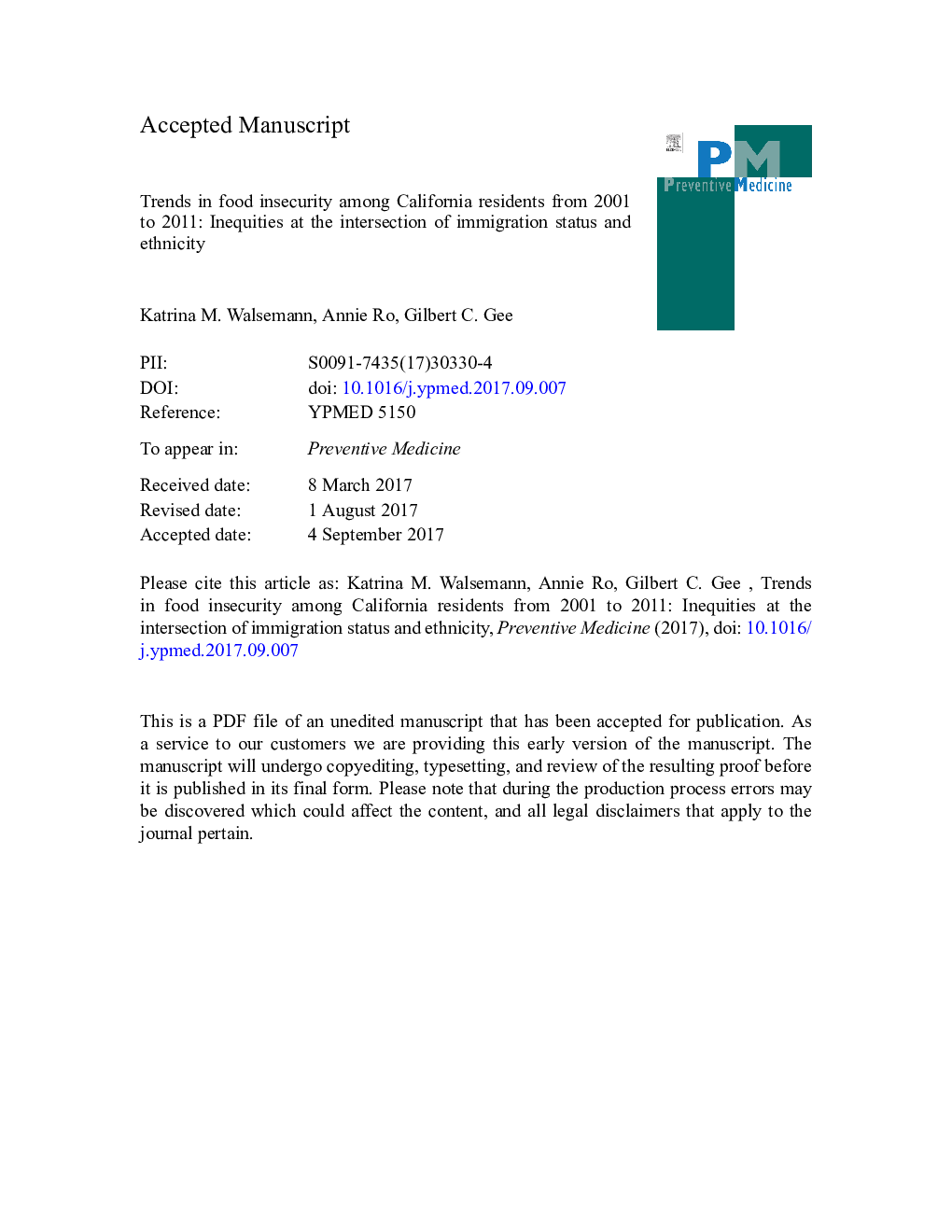| Article ID | Journal | Published Year | Pages | File Type |
|---|---|---|---|---|
| 5635472 | Preventive Medicine | 2017 | 27 Pages |
Abstract
Although immigrants are healthier than non-immigrants on numerous outcomes, the reverse appears to be true with regards to food insecurity. Most studies ignore heterogeneity in the risk for food insecurity within immigration status and by ethnicity, even though significant variation likely exists. We consider how immigration status and ethnicity are related to trends in food insecurity among Latinos and Asians in California from 2001 through 2011. Data come from the 2001 to 2011 restricted California Health Interview Survey (n = 245,679). We categorized Latinos and Asians as US-born, naturalized/legal permanent residents (naturalized/LPR), and non-LPRs (students, temporary workers, refugees, and undocumented persons). Multivariable weighted logistic regression analyses assessed temporal trends over the 10-year period after adjustment for demographics, socioeconomic characteristics, and program participation. Across this period, US-born Asians reported similar levels of food insecurity as US-born Whites. Conversely, Latinos, regardless of immigration status or nativity, and Asian immigrants (i.e., naturalized/LPR and non-LPR) reported greater food insecurity than US-born Whites. Further, from 2001 through 2009, non-LPR Latinos reported higher risk of food insecurity than naturalized/LPR Latinos. Thus, food insecurity differs between ethnic groups, but also differs within ethnic group by immigration status. Efforts to reduce food insecurity should consider the additional barriers to access that are faced by immigrants, particularly those without legal permanent residency.
Keywords
Related Topics
Health Sciences
Medicine and Dentistry
Complementary and Alternative Medicine
Authors
Katrina M. Walsemann, Annie Ro, Gilbert C. Gee,
